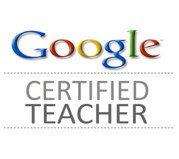Although I continue present my work under the brand of "edtechworkshop," my professional interests are moving away from "ed tech." Job-wise I have transitioned from (all titles in quotes because that is how I think of them) "technology coordinator" to "21st century learning specialist" to "Director of Teaching & Learning (as titles go, I like that one best) to my current job title of "4th/5th grade language arts teacher" (as the actual work goes, I like this one best).
When I was working with Silvia Tolisano to transform school culture, we recognized the importance of parent education and responded with monthly "Parent Connect" sessions. We had a small but dedicated group who joined with us to discuss a variety of topics related to changes in learning and how our school was responding to those changes. It was of huge importance to the success of many initiatives, as that small group of parents acted as "ambassadors" spreading vital positivity and understanding throughout the parent community.
So, it was natural for me to turn back to the Parent Connect model as a way to build support and understanding for my non-traditional LA classroom.
There is a great deal of fear that goes along with letting go and allowing learning communities to flourish without many of the trappings of the box known as school.
I am lucky to have a great partner in librarian Karin Hallett, and I have really enjoyed preparing for and presenting the sessions.
Our most recent session was, "Authentic Literacy: What is it and why does it matter?"
Here are the slides from that session:
Authentic literacy from Andrea Hernandez
If you're interested in some slide details or related articles, you can find that here.
But what I wanted to share here was the "soup analogy" that I described on slide #4. So many people commented afterwards how this idea really spoke to them.
If you're interested in some slide details or related articles, you can find that here.
But what I wanted to share here was the "soup analogy" that I described on slide #4. So many people commented afterwards how this idea really spoke to them.
I realize that at one time, processed, canned food was all the rage and seemed like the answer to all the problems of feeding the people. However, it didn't take long to figure out that an authentic, hand-crafted soup was not only more delicious but was healthier and generally the better all-around option.
I imagine that many kids who grew up eating salty, tinny, canned soup decided that they didn't really like soup. Just like many kids who are growing up on a canned, uniform, pre-packaged reading curriculum believe that they don't really like reading. How sad that they have never tasted the real thing.







